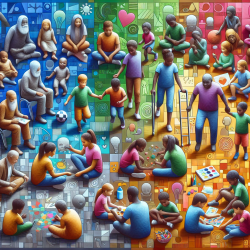The impact of armed conflict on children is profound and long-lasting. These young individuals often face severe mental health challenges, including depression, PTSD, and neurological issues. Traditional approaches to addressing these problems have primarily focused on deficits, emphasizing treatment for these conditions. However, recent research highlights the importance of shifting towards a strengths-based approach that leverages existing community resources and assets to support children's mental health and psychosocial well-being.
The Case for a Strengths-Based Approach
A strengths-based approach recognizes the inherent resilience present in many war-affected children. It focuses not on their deficits but on their ability to adapt and thrive despite adversity. This approach is built on the understanding that children's resilience is often rooted in protective factors within their social ecologies, such as relationships with family members, peers, teachers, and community leaders.
By emphasizing existing strengths, practitioners can help offset the harms caused by accumulating risks. This method also contributes to sustainability because these strengths are likely to persist even after emergency mental health programs have ended. Unlike deficit-focused approaches, strengths-based methods avoid stigmatizing children as passive victims and instead empower them as active agents in their own well-being.
The Role of Community Action
Communities play a crucial role in supporting war-affected children. Community-level supports can reach large numbers of children efficiently and sustainably. These supports often involve person-to-person interactions by non-specialists such as teachers, religious leaders, and volunteers who provide ongoing assistance without relying on external funding.
Community-based child protection mechanisms (CBCPMs) are particularly effective in this regard. These networks monitor risks to children, provide informal support, and refer severely affected children to specialists when necessary. CBCPMs build on local resources and foster local ownership, making them sustainable solutions driven by community values and motivations rather than external funding.
Challenges and Implications for Practitioners
Despite the promise of strengths-based approaches, significant challenges remain. The evidence base for community-driven interventions is still developing, necessitating further research using robust designs and outcome measures. Additionally, practitioners must navigate settings with low social cohesion or abundant competition for resources.
An essential shift is required in both orientation and methodology to prioritize local strengths and empower communities as active participants in supporting children's well-being. This shift involves listening deeply to communities, relinquishing control, and focusing less on technical approaches while supporting community-driven initiatives.
A Call to Action
The potential of strengths-based community action extends beyond war zones. In developed societies as well, building upon existing community strengths can enhance mental health systems and support vulnerable populations effectively.
Practitioners are encouraged to explore the outcomes of this research further and consider implementing strengths-based approaches in their work with war-affected children. By doing so, they can contribute to creating sustainable solutions that empower communities and foster resilience among young individuals facing adversity.
Strengths-based community action as a source of resilience for children affected by armed conflict










